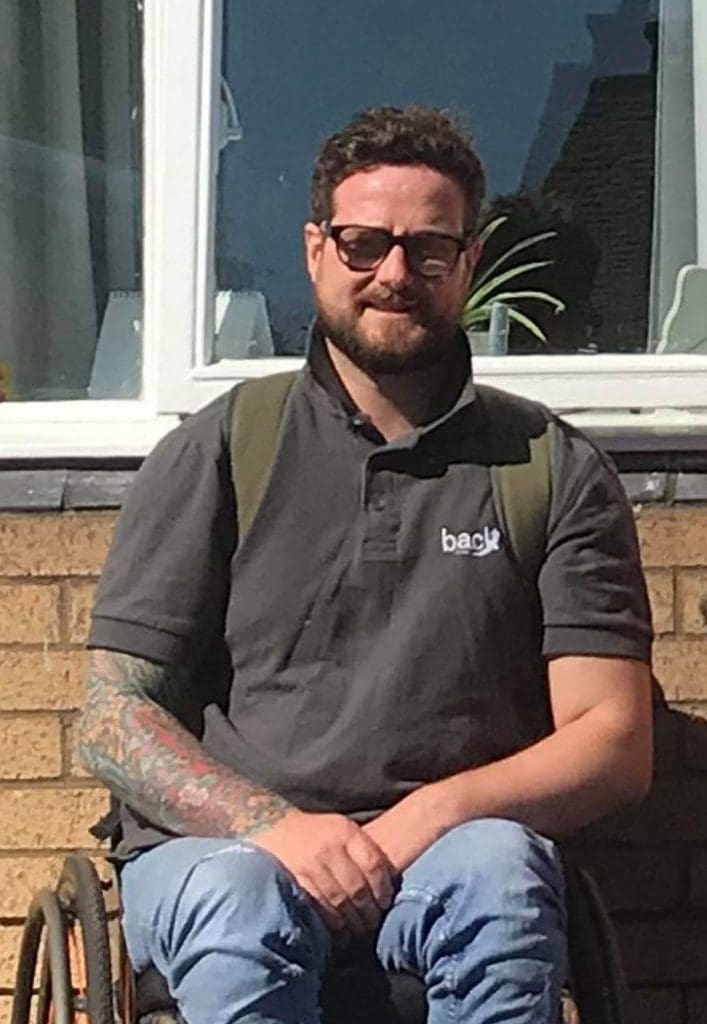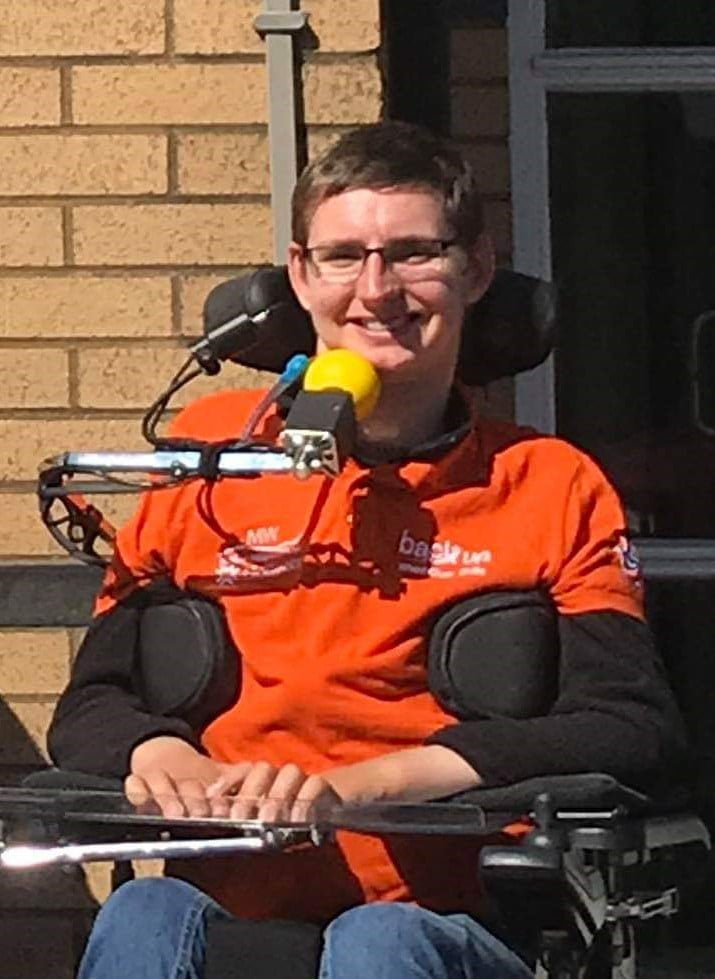Focus on Glasgow
Queen Elizabeth National Spinal Unit
Key facts
- 48 beds
- 8 Wheelchair Skills sessions per year
Rich – Outreach and Support Coordinator

How did you first get involved with Back Up?
My first involvement was as an inpatient in 2009 when I attended a Back Up wheelchair skills session. I remember how much the session meant to me at the time, how important these skills were to allow me to lead an independent life and allow me to do everything I wanted to in a world that isn’t 100% accessible for me with my “new” body. From there, a Back Up ski course was the next step to learn a new sport, get support from peers and tackle new things like doing a long-haul flight for the first-time post spinal cord injury. That was a huge achievement for me. Becoming trained as a WCS Volunteer soon followed and after about a year the opportunity came up to become Back Up’s first remote working member of staff as O&S coordinator for Scotland – a chance which I seized and have very much embraced since.
What is your current role?
Outreach and Support coordinator for Scotland – Responsibility for Glasgow Spinal Unit, Outreach Clinics and General Hospitals around the country.
What is your proudest achievement at this centre?
To date, my proudest achievement at QENSIU is the increased visibility/presence that Back Up has at the unit and strengthening of ties between the staff at the spinal unit and the charity. By having a member of staff based in Scotland rather than travelling up from the central office in London, the frequency of visits has increased. This has subsequently made more staff and patients aware of who we are, what services we provide both within the hospital and out, leading to a marked increase in wheelchair skills sessions and involvement in the patient education programme in a peer support capacity, both of which increase a patients “preparedness” for discharge. This preparedness is important as it has been shown that those that have positive coping strategies implemented through rehab and discharge are more likely to go on to be positive in terms of outlook overall and in everyday life with a spinal cord injury.
What is the biggest challenge or frustration facing you at this centre?
Although everything at the centre is going relatively well, I feel there is scope for improvement. Due to staff being busy with the day-to-day and an extensive Patient Education program, its often hard to free up staff for wheelchair skills extra sessions. I feel this is an area we could improve as its useful for patients as the next natural progressive step from the WCS sessions we currently hold within the spinal unit, letting individuals experience outdoor terrain and obtain skills as a prep for either discharge or going out “on pass” for the weekend. The benefits would be palpable out in the community, influencing overall independence post leaving the spinal centre.
If you could wave a magic wand and change one thing, what would it be?
As previously mentioned, we are doing a lot of great work here at the centre but freeing up staff for these Wheelchair Skills Extra sessions would be my one wish.
Pete Lloyd – Volunteer Wheelchair Skills Trainer

How did you get involved with Back Up?
My first experience with Back Up was when Rich came in for a chat while I was an inpatient in the spinal unit. After that, he asked if I would be interested in becoming a power chair skills trainer, which I jumped (not literally) at. The wheelchair skills training course in Coventry was great fun and I’m really enjoying helping out with the skill sessions in the spinal unit. Since, I’ve also done the Snowdon Push, which was just incredible.
What is your current role?
I’m a power chair skills trainer.
What is your proudest achievement at this centre?
Seeing the group’s confidence grow during a session or the next time I visit. However, I think it’s more important, especially for patients with high level injuries, to see somebody who is further down the line than them enjoying life and to be able to offer them any advice I can.
What is the biggest challenge or frustration facing you at this centre?
Not having enough time to be able to have proper conversations with all of the people in the session and then also people in the wards, who might not be physically able to take part, but the human interaction would still be very helpful for them.
If you could wave a magic wand and change one thing, what would it be?
To be able to go in on other days and spend time talking to more patients.


